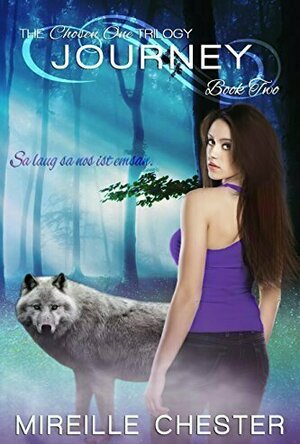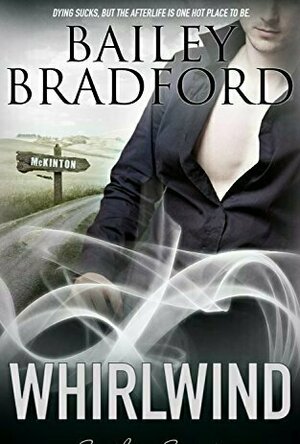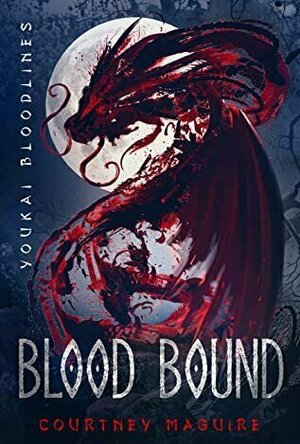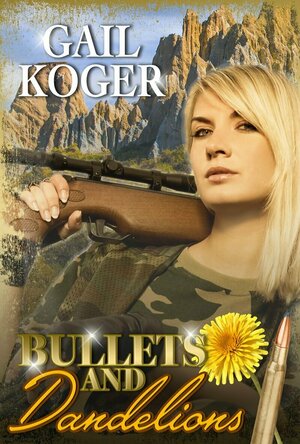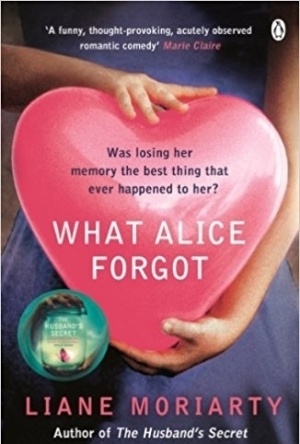Search
Search results

UDisc+ Disc Golf
Sports and Travel
App
If you are new to UDisc install our fully featured free app (scroll down to related apps). Join...

WG-Gesucht.de - Find your home
Navigation
App
The iOS app by WG-Gesucht.de helps you to find and advertise flatshares and flats for short term...
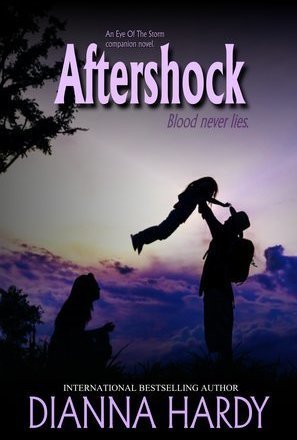
Aftershock (Blood Never Lies #2)
Book
Aftershock is a companion novel to the Eye of the Storm series and also acts as a PREQUEL to a brand...
Paranormal Urban Fantasy
Hazel (2934 KP) rated Lost Graves (Boyle & Keneally #2) [Audiobook] in Books
Feb 6, 2022
I am always a bit wary of joining a new series without having read at least the first book however, I needn't have worried because this really works as a standalone and I am now hooked and eagerly awaiting the next instalment.
What we have here is a great story that mixes crime, mystery, serial killer, police procedural with Irish folklore, the supernatural, the travelling community and shady military operations. Now, you might think that's a lot and whilst it is, S.A. Dunphy brings it all together seamlessly and effortlessly.
A mass grave is found in Derrada Woods and the National Bureau of Criminal Investigations Team are sent in to investigate; made up of Jessie, Seamus, Terri and Dawn, they are definitely a team not to be messed with and they quickly recognise the local police have the wrong man.
The ensuing investigation is full of twists and turns with plenty of action and suspense all written at a great pace. With short chapters, this is one of those books that have you thinking you can mange 'just one more chapter before bed' but before you know it, another hour has gone by ... you just get drawn in and it's hard to tear yourself away.
I listened to the audiobook and was completely absorbed by the narration done by Shelley Atkinson; her soft Irish tone really brought the characters to life and the subtle changes she made in order to make the different characters distinguishable was perfect.
Overall, a great 'listen' and I will definitely be looking out for the next in this enthralling series and my thanks must go to Bookouture and NetGalley for my copy in return for an honest, unbiased and unedited review.
What we have here is a great story that mixes crime, mystery, serial killer, police procedural with Irish folklore, the supernatural, the travelling community and shady military operations. Now, you might think that's a lot and whilst it is, S.A. Dunphy brings it all together seamlessly and effortlessly.
A mass grave is found in Derrada Woods and the National Bureau of Criminal Investigations Team are sent in to investigate; made up of Jessie, Seamus, Terri and Dawn, they are definitely a team not to be messed with and they quickly recognise the local police have the wrong man.
The ensuing investigation is full of twists and turns with plenty of action and suspense all written at a great pace. With short chapters, this is one of those books that have you thinking you can mange 'just one more chapter before bed' but before you know it, another hour has gone by ... you just get drawn in and it's hard to tear yourself away.
I listened to the audiobook and was completely absorbed by the narration done by Shelley Atkinson; her soft Irish tone really brought the characters to life and the subtle changes she made in order to make the different characters distinguishable was perfect.
Overall, a great 'listen' and I will definitely be looking out for the next in this enthralling series and my thanks must go to Bookouture and NetGalley for my copy in return for an honest, unbiased and unedited review.
Merissa (13749 KP) rated Journey (The Chosen One Trilogy #2) in Books
Apr 15, 2023
This is the second in The Chosen One trilogy and picks up where Crossover finished. You are straight back in the action with Hayden and Jasper as they fight for what they believe in and against being used by someone else. The choices that Hayden has to make never become easier but as a person, she grows and becomes more comfortable with the decisions she has to make. Jasper is by her side, supporting her in everything she does and I pity the person who tries to come between them.
This is very well-written although the perspective changes from Hayden to Jasper without warning which I personally found a bit jarring. However, saying that, it was good to get Jasper's perspective on things so I liked it, but a title or note at the beginning of each chapter would have made it smoother in my opinion.
The plot advances swiftly and time skips over 'dead time' occasionally as the plot moves forward. the character development is good and I am looking forward to learning more about the bond between Hayden and Alex, the bond between the Queen and the cats etc. So much information is given to you in this book and yet I am still left wanting more. I need the third book in this fabulous series!
In short, this is a brilliant book that shows the depth and sacrifice entailed with deep and enduring love. I love the world-building and the characters and can't wait to reimmerse myself in Hayden's world. Highly recommended.
* A copy of this book was provided to me with no requirements for a review. I voluntarily read this book; the comments here are my honest opinion. *
Merissa
Archaeolibrarian - I Dig Good Books!
Sep 9, 2015
This is very well-written although the perspective changes from Hayden to Jasper without warning which I personally found a bit jarring. However, saying that, it was good to get Jasper's perspective on things so I liked it, but a title or note at the beginning of each chapter would have made it smoother in my opinion.
The plot advances swiftly and time skips over 'dead time' occasionally as the plot moves forward. the character development is good and I am looking forward to learning more about the bond between Hayden and Alex, the bond between the Queen and the cats etc. So much information is given to you in this book and yet I am still left wanting more. I need the third book in this fabulous series!
In short, this is a brilliant book that shows the depth and sacrifice entailed with deep and enduring love. I love the world-building and the characters and can't wait to reimmerse myself in Hayden's world. Highly recommended.
* A copy of this book was provided to me with no requirements for a review. I voluntarily read this book; the comments here are my honest opinion. *
Merissa
Archaeolibrarian - I Dig Good Books!
Sep 9, 2015
Merissa (13749 KP) rated Whirlwind (Southern Spirits #8) in Books
Apr 25, 2023
Stefan suffered before he died, in more ways than one, and it took him time to realise that he was 'different' as a spirit than he was alive. Sometimes he still forgets. He is also lonely. He has seen those that he cares about pair up as the years have gone by, and now Connor has too. He realises that it is possible but just hasn't found anyone who sparks his interest.
Jordan and Gideon were best friends, in the Forces, and haven't done anything together to further their friendship. When their time on earth is cut short, they stay together but are still unable to admit how they feel for each other. They make their way to McKinton where Jordan's mother lives. Gideon spots Stefan close to Jordan's mum. Stefan is actually trying to console the heartbroken mother, but Gideon thinks he is trying to hurt her so attacks.
This book starts off quite sad as Stefan is alone, and Jordan and Gideon have to die. However, it couldn't move on if it wasn't for this fact so stick with it. Stefan's mischievous side comes through, as well as Connor's protective side towards Stefan. Connor also seems to be packing some amazing powers, which I loved reading about.
Lack of communication, misunderstandings, personal inhibitions - they're all here and need to be solved before these three brilliant guys can sort themselves out.
Well-written once again, and fast-paced, I don't know if I'm ready to say goodbye to the Southern Spirits! Loved the book and the series.
* A copy of this book was provided to me with no requirements for a review. I voluntarily read this book, and the comments here are my honest opinion. *
Merissa
Archaeolibrarian - I Dig Good Books!
Nov 23, 2015
Jordan and Gideon were best friends, in the Forces, and haven't done anything together to further their friendship. When their time on earth is cut short, they stay together but are still unable to admit how they feel for each other. They make their way to McKinton where Jordan's mother lives. Gideon spots Stefan close to Jordan's mum. Stefan is actually trying to console the heartbroken mother, but Gideon thinks he is trying to hurt her so attacks.
This book starts off quite sad as Stefan is alone, and Jordan and Gideon have to die. However, it couldn't move on if it wasn't for this fact so stick with it. Stefan's mischievous side comes through, as well as Connor's protective side towards Stefan. Connor also seems to be packing some amazing powers, which I loved reading about.
Lack of communication, misunderstandings, personal inhibitions - they're all here and need to be solved before these three brilliant guys can sort themselves out.
Well-written once again, and fast-paced, I don't know if I'm ready to say goodbye to the Southern Spirits! Loved the book and the series.
* A copy of this book was provided to me with no requirements for a review. I voluntarily read this book, and the comments here are my honest opinion. *
Merissa
Archaeolibrarian - I Dig Good Books!
Nov 23, 2015
Merissa (13749 KP) rated Blood Bound (Youkai Bloodlines #3) in Books
Jan 19, 2022 (Updated Jul 5, 2023)
BLOOD BOUND is the third book in the Youkai Bloodlines series, and we continue with Hide and Hiro's story, with Asagi, of course!
Hide still can't show Hiro his affection, which leads to a chasm between them that seems as though it can't be breached. Hiro ends up leaving and, in doing so, finds friendship and love with a human, Takanori. Unfortunately, it was doomed from the beginning (human, remember!). Not only that, Taka becomes mortally ill.
Now, I'm going negative first, so be warned. I have no idea if it was my review copy, but none of the chapters gave any indication about who was speaking or even what year it was. This caused me confusion as I tried to figure out just what was going on and when, as we flip from times and characters as the story progresses. Each time it happened, I got kicked out of the story as I scrambled to keep up.
Moving to the positive - you get a beautiful but all-too-short romance with Taka and Hiro. PLUS, and this was a real benefit to me, you get the inside knowledge and history on Hide, Hiro, and even a little on Asagi. This really helped to put into perspective each character, their view of the world, and how they cope with it.
On the whole, this was a great addition to the series and I can't wait to find out where we go next. Absolutely recommended by me.
** same worded review will appear elsewhere **
* A copy of this book was provided to me with no requirements for a review. I voluntarily read this book, and the comments here are my honest opinion. *
Merissa
Archaeolibrarian - I Dig Good Books!
Jan 19, 2022
Hide still can't show Hiro his affection, which leads to a chasm between them that seems as though it can't be breached. Hiro ends up leaving and, in doing so, finds friendship and love with a human, Takanori. Unfortunately, it was doomed from the beginning (human, remember!). Not only that, Taka becomes mortally ill.
Now, I'm going negative first, so be warned. I have no idea if it was my review copy, but none of the chapters gave any indication about who was speaking or even what year it was. This caused me confusion as I tried to figure out just what was going on and when, as we flip from times and characters as the story progresses. Each time it happened, I got kicked out of the story as I scrambled to keep up.
Moving to the positive - you get a beautiful but all-too-short romance with Taka and Hiro. PLUS, and this was a real benefit to me, you get the inside knowledge and history on Hide, Hiro, and even a little on Asagi. This really helped to put into perspective each character, their view of the world, and how they cope with it.
On the whole, this was a great addition to the series and I can't wait to find out where we go next. Absolutely recommended by me.
** same worded review will appear elsewhere **
* A copy of this book was provided to me with no requirements for a review. I voluntarily read this book, and the comments here are my honest opinion. *
Merissa
Archaeolibrarian - I Dig Good Books!
Jan 19, 2022
Debbiereadsbook (1650 KP) rated Bullets and Dandelions (Deputy Gemma Stone #0.5) in Books
Jan 30, 2025
struggled to keep up!
Independent reviewer for Archaeolibrarian, I was gifted my copy of this book.
This is billed as a kind of prequel to the Gemma Stone series. I have to say, I only read book 2 of those, but I am confused as to what Tess here has to do with Gemma in the main series.
That said, my review for this book will be almost a carbon copy of my review for book 2, Stilettos and Combat Boots.
Because in that book, Gemma gets into so many scrapes and incidents, almost as many as Tess does here! Well, I mean, her dad is trying to kill her, an enemy of said dad is also trying to kill her and a bunch of Marines are trying to keep her alive, but she doesn't trust them, especially when they won't give her the chocolate she craves! So, she isn't living the easiest of lives, but again, it's WAY too much for me in such a short book.
There is a lot of violence here, with bombs, guns and helicopter crashes, and I couldn't catch my breath between each event, so Lord knows how Tess kept up.
There is no smex here, but . . . .oh! I *think* I just made the connection. One of the Marines is called Alex Stone, and I wonder if he is Gemma's brother? I dunno if it was mentioned, to be honest. Anyway, back to my thoughts. There is very little smex here, but Alex Stone does talk a lot about Tess and what they are gonna get up to, once they are safe (but I'm not sure that would happen any time soon!)
I liked it, it passed a quiet morning at work. But I would have liked to hear from Alex as well as Tess.
3 very good stars
*same worded review will appear elsewhere
This is billed as a kind of prequel to the Gemma Stone series. I have to say, I only read book 2 of those, but I am confused as to what Tess here has to do with Gemma in the main series.
That said, my review for this book will be almost a carbon copy of my review for book 2, Stilettos and Combat Boots.
Because in that book, Gemma gets into so many scrapes and incidents, almost as many as Tess does here! Well, I mean, her dad is trying to kill her, an enemy of said dad is also trying to kill her and a bunch of Marines are trying to keep her alive, but she doesn't trust them, especially when they won't give her the chocolate she craves! So, she isn't living the easiest of lives, but again, it's WAY too much for me in such a short book.
There is a lot of violence here, with bombs, guns and helicopter crashes, and I couldn't catch my breath between each event, so Lord knows how Tess kept up.
There is no smex here, but . . . .oh! I *think* I just made the connection. One of the Marines is called Alex Stone, and I wonder if he is Gemma's brother? I dunno if it was mentioned, to be honest. Anyway, back to my thoughts. There is very little smex here, but Alex Stone does talk a lot about Tess and what they are gonna get up to, once they are safe (but I'm not sure that would happen any time soon!)
I liked it, it passed a quiet morning at work. But I would have liked to hear from Alex as well as Tess.
3 very good stars
*same worded review will appear elsewhere
Heather Cranmer (2721 KP) rated What Alice Forgot in Books
Feb 27, 2019
For some reason, I kept seeing What Alice Forgot by Liane Moriarty almost every book place I would look. At first, I wasn't interested, but it kept showing up. Eventually, I took it as a sign that maybe I should read What Alice Forgot. I'm glad I did because it was a great book!
The plot for What Alice Forgot is a complex and deep one. It's not just about Alice. It's also about her sister Elisabeth, whom we learn more through letters to her therapist, Jeremy. Elisabeth is trying to conceive. She keeps going through failed IVF treatments time and time again. We learn about her struggle and how she's handling that. We also learn about Frannie, Alice's surrogate grandmother, through letters with a man named Phil. At the center of the story is Alice. After falling off a stationary bike and bumping her head during spin class, Alice wakes up to find some can't remember anything that happened for the past 10 years. Alice believes she is still 29, and she finds it frustrating and a tad funny that she's really almost 40 years old. Alice can't believe who she's turned into at 39. She would hate herself! The book explains if Alice will be more loving and carefree like her 29 year old self or if she'll be that rushed, cynical woman she was at 39 when and if she gets her memories back. There were one or two plot twists although I wouldn't consider them major. All of my questions were answered, and Liane Moriarty did an excellent job of tying up any loose ends and writing a great epilogue explaining what happened to each character years later.
I loved the characters in What Alice Forgot! I felt they were all very fleshed out and felt like I was reading about real live people. It was interesting to see Alice at odds with herself when her old self was surprised by what her new self (before she hit her head and lost her memory for the past 10 years) was like. I, personally, liked Alice after she forgot her memory. She was more fun loving and carefree. New Alice was always rushed and snippy. I also liked Nick, Alice's soon to be ex-husband. Although he was rushed with work, I loved how he still would help out Alice. I really related to Alice's oldest daughter, Madison, the most. Madison had experienced so much in her short life, so she was acting out a lot of the time. I just wanted to hug her. Alice's youngest daughter, Olivia, was really cute and funny. I loved how she referred to everything as "darling." My heart really went out to Elisabeth. I just wanted Elisabeth to finally have a baby of her own after miscarrying so many times in the past. Frannie was such a fun character! I was moved by her love of Elisabeth and Alice, and I really appreciated her humor at times!
The pacing for What Alice Forgot was a bit hit and miss sometimes. There were a lot of times, mostly during the first 60 percent or so in the book, that I thought about just giving up and finding something else to read. However, I would read a bit more, and the pacing would pick up again. Then it would go back to being slow. Once I got about 65 percent through the book, the pacing found its footing, and it was smooth sailing from there. My eyes devoured the rest of the pages, and I couldn't wait to find out if Alice would get her memory back or if she'd end up with Nick or Dominick. (I was Team Nick throughout the book.) I also wanted to know what would come of Elisabeth's IVF treatment. I really wanted her to have a baby of her own!
Trigger warnings for What Alice Forgot include miscarriages, failed fertility treatments, amnesia, divorce, death, drinking, some profanities, and a few mentions of sex but no details.
Overall, What Alice Forgot is a lovely read even though the pacing is a bit off for the first half or so in the book. Luckily, the pacing redeems itself, and with a great plot and fantastic characters, this book does make a good read. I would definitely recommend What Alice Forgot by Liane Moriarty to everyone aged 16+ who loves a feel good novel.
The plot for What Alice Forgot is a complex and deep one. It's not just about Alice. It's also about her sister Elisabeth, whom we learn more through letters to her therapist, Jeremy. Elisabeth is trying to conceive. She keeps going through failed IVF treatments time and time again. We learn about her struggle and how she's handling that. We also learn about Frannie, Alice's surrogate grandmother, through letters with a man named Phil. At the center of the story is Alice. After falling off a stationary bike and bumping her head during spin class, Alice wakes up to find some can't remember anything that happened for the past 10 years. Alice believes she is still 29, and she finds it frustrating and a tad funny that she's really almost 40 years old. Alice can't believe who she's turned into at 39. She would hate herself! The book explains if Alice will be more loving and carefree like her 29 year old self or if she'll be that rushed, cynical woman she was at 39 when and if she gets her memories back. There were one or two plot twists although I wouldn't consider them major. All of my questions were answered, and Liane Moriarty did an excellent job of tying up any loose ends and writing a great epilogue explaining what happened to each character years later.
I loved the characters in What Alice Forgot! I felt they were all very fleshed out and felt like I was reading about real live people. It was interesting to see Alice at odds with herself when her old self was surprised by what her new self (before she hit her head and lost her memory for the past 10 years) was like. I, personally, liked Alice after she forgot her memory. She was more fun loving and carefree. New Alice was always rushed and snippy. I also liked Nick, Alice's soon to be ex-husband. Although he was rushed with work, I loved how he still would help out Alice. I really related to Alice's oldest daughter, Madison, the most. Madison had experienced so much in her short life, so she was acting out a lot of the time. I just wanted to hug her. Alice's youngest daughter, Olivia, was really cute and funny. I loved how she referred to everything as "darling." My heart really went out to Elisabeth. I just wanted Elisabeth to finally have a baby of her own after miscarrying so many times in the past. Frannie was such a fun character! I was moved by her love of Elisabeth and Alice, and I really appreciated her humor at times!
The pacing for What Alice Forgot was a bit hit and miss sometimes. There were a lot of times, mostly during the first 60 percent or so in the book, that I thought about just giving up and finding something else to read. However, I would read a bit more, and the pacing would pick up again. Then it would go back to being slow. Once I got about 65 percent through the book, the pacing found its footing, and it was smooth sailing from there. My eyes devoured the rest of the pages, and I couldn't wait to find out if Alice would get her memory back or if she'd end up with Nick or Dominick. (I was Team Nick throughout the book.) I also wanted to know what would come of Elisabeth's IVF treatment. I really wanted her to have a baby of her own!
Trigger warnings for What Alice Forgot include miscarriages, failed fertility treatments, amnesia, divorce, death, drinking, some profanities, and a few mentions of sex but no details.
Overall, What Alice Forgot is a lovely read even though the pacing is a bit off for the first half or so in the book. Luckily, the pacing redeems itself, and with a great plot and fantastic characters, this book does make a good read. I would definitely recommend What Alice Forgot by Liane Moriarty to everyone aged 16+ who loves a feel good novel.
Ivana A. | Diary of Difference (1171 KP) rated Switched (Trylle, #1) in Books
Apr 20, 2020
<a href="https://amzn.to/2Wi7amb">Wishlist</a>; | <a
<a href="https://diaryofdifference.com/">Blog</a>; | <a href="https://www.facebook.com/diaryofdifference/">Facebook</a>; | <a href="https://twitter.com/DiaryDifference">Twitter</a>; | <a href="https://www.instagram.com/diaryofdifference/">Instagram</a>; | <a href="https://www.pinterest.co.uk/diaryofdifference/pins/">Pinterest</a>;
#1 <a href="https://www.goodreads.com/review/show/2886475888">Switched</a>; - ★★★★★
#1 <a href="https://www.goodreads.com/review/show/3257360720">Torn</a>; - Not Read Yet
<img src="https://i2.wp.com/diaryofdifference.com/wp-content/uploads/2020/03/Book-Review-Banner-29.png?w=1920&ssl=1"/>;
<b>Wendy Everly knew she was different the day her mother tried to kill her…</b>
Her mother told her she has been switched at birth. Unable to fit anywhere, bored and frustrated by her small-town life, she also has to hide her secret - the fact that she can somehow influence people’s decisions, without knowing how or why she does it.
When the dark and handsome Finn shows up at her bedroom window one night, her life changes forever! The secret she has been waiting for has finally been revealed. Finn holds the key to her past and has an answer to her strange ability. He is also about to introduce her to a place she never imagined could exist: Forening, the home of Trylle.
Among the Trylle she is not different, but she is special. But being special also brings danger wherever she goes and with everything around her being new, Finn is the only person she can trust. But will trusting him be enough to stay alive?
<a href="https://www.instagram.com/p/B-VtJ8ZAUlF/">View this post on Instagram</a>
<img src="https://i0.wp.com/diaryofdifference.com/wp-content/uploads/2020/03/IMG_20200330_022115_989.jpg?ssl=1&w=510"/>;
<b><i>My Thoughts:</i></b>
I absolutely LOVED, LOVED, LOVED Switched, and I need to buy the second book in the series as soon as possible!
Wendy is a girl that you immediately want to be friends with. Witty, honest and caring, willing to do everything for the people she loves - she is so precious and I wouldn’t let anyone touch her!
Finn - he is the fiction version of my boyfriend… Dark, handsome, brutally honest and his ego can sometimes get in the way. He is a tracker - and his job is to find other people like Wendy, who have special powers. Finn is a sort of a body-guard. And because Wendy is special and the future Queen, she cannot be with anyone that is not the same or similar rank as her. Which means that being with Finn is impossible.
<b>Not allowed.</b>
Frowned upon and could result in banishment for both. Loss of crown type of bad.
From the first chapter I was into Wendy’s world and this book was so quick to read. I read it in less than a day and it felt too short! It’s a page-turner in every sense of the world.
The world building as well as the Trylle people were quite interesting and unique. I also loved the fact that even though Wendy and Finn were amazing characters, we met so many other characters, who were also very well portrayed in their own way and all left a mark: Elora, Rhys, Matt, Tove, Rhiannon, Willa… All of them had their own uniqueness, and I can imagine how hard it can be to give life to so many characters in such a small book.
I rooted for Wendy and Finn’s romance, as you can imagine, and I have to say, I was a bit disappointed with the ending. However, I knew that was the right choice for Wendy at the time, and also, it left a great cliff-hanger for the second book, for me to read. I think that in the second book, a few old things will open up again and maybe, this time, the ending will go as I wanted it to go in the first book.
<b><i>I recommend this book with all my heart to all of you that love fantasy and young-adult romance. You will read it fast and you will fall in love with it even faster. Switched is definitely a book I am adding to my favorites.</i></b>
<a href="https://amzn.to/2Wi7amb">Wishlist</a>; | <a
<a href="https://diaryofdifference.com/">Blog</a>; | <a href="https://www.facebook.com/diaryofdifference/">Facebook</a>; | <a href="https://twitter.com/DiaryDifference">Twitter</a>; | <a href="https://www.instagram.com/diaryofdifference/">Instagram</a>; | <a href="https://www.pinterest.co.uk/diaryofdifference/pins/">Pinterest</a>;
<a href="https://diaryofdifference.com/">Blog</a>; | <a href="https://www.facebook.com/diaryofdifference/">Facebook</a>; | <a href="https://twitter.com/DiaryDifference">Twitter</a>; | <a href="https://www.instagram.com/diaryofdifference/">Instagram</a>; | <a href="https://www.pinterest.co.uk/diaryofdifference/pins/">Pinterest</a>;
#1 <a href="https://www.goodreads.com/review/show/2886475888">Switched</a>; - ★★★★★
#1 <a href="https://www.goodreads.com/review/show/3257360720">Torn</a>; - Not Read Yet
<img src="https://i2.wp.com/diaryofdifference.com/wp-content/uploads/2020/03/Book-Review-Banner-29.png?w=1920&ssl=1"/>;
<b>Wendy Everly knew she was different the day her mother tried to kill her…</b>
Her mother told her she has been switched at birth. Unable to fit anywhere, bored and frustrated by her small-town life, she also has to hide her secret - the fact that she can somehow influence people’s decisions, without knowing how or why she does it.
When the dark and handsome Finn shows up at her bedroom window one night, her life changes forever! The secret she has been waiting for has finally been revealed. Finn holds the key to her past and has an answer to her strange ability. He is also about to introduce her to a place she never imagined could exist: Forening, the home of Trylle.
Among the Trylle she is not different, but she is special. But being special also brings danger wherever she goes and with everything around her being new, Finn is the only person she can trust. But will trusting him be enough to stay alive?
<a href="https://www.instagram.com/p/B-VtJ8ZAUlF/">View this post on Instagram</a>
<img src="https://i0.wp.com/diaryofdifference.com/wp-content/uploads/2020/03/IMG_20200330_022115_989.jpg?ssl=1&w=510"/>;
<b><i>My Thoughts:</i></b>
I absolutely LOVED, LOVED, LOVED Switched, and I need to buy the second book in the series as soon as possible!
Wendy is a girl that you immediately want to be friends with. Witty, honest and caring, willing to do everything for the people she loves - she is so precious and I wouldn’t let anyone touch her!
Finn - he is the fiction version of my boyfriend… Dark, handsome, brutally honest and his ego can sometimes get in the way. He is a tracker - and his job is to find other people like Wendy, who have special powers. Finn is a sort of a body-guard. And because Wendy is special and the future Queen, she cannot be with anyone that is not the same or similar rank as her. Which means that being with Finn is impossible.
<b>Not allowed.</b>
Frowned upon and could result in banishment for both. Loss of crown type of bad.
From the first chapter I was into Wendy’s world and this book was so quick to read. I read it in less than a day and it felt too short! It’s a page-turner in every sense of the world.
The world building as well as the Trylle people were quite interesting and unique. I also loved the fact that even though Wendy and Finn were amazing characters, we met so many other characters, who were also very well portrayed in their own way and all left a mark: Elora, Rhys, Matt, Tove, Rhiannon, Willa… All of them had their own uniqueness, and I can imagine how hard it can be to give life to so many characters in such a small book.
I rooted for Wendy and Finn’s romance, as you can imagine, and I have to say, I was a bit disappointed with the ending. However, I knew that was the right choice for Wendy at the time, and also, it left a great cliff-hanger for the second book, for me to read. I think that in the second book, a few old things will open up again and maybe, this time, the ending will go as I wanted it to go in the first book.
<b><i>I recommend this book with all my heart to all of you that love fantasy and young-adult romance. You will read it fast and you will fall in love with it even faster. Switched is definitely a book I am adding to my favorites.</i></b>
<a href="https://amzn.to/2Wi7amb">Wishlist</a>; | <a
<a href="https://diaryofdifference.com/">Blog</a>; | <a href="https://www.facebook.com/diaryofdifference/">Facebook</a>; | <a href="https://twitter.com/DiaryDifference">Twitter</a>; | <a href="https://www.instagram.com/diaryofdifference/">Instagram</a>; | <a href="https://www.pinterest.co.uk/diaryofdifference/pins/">Pinterest</a>;
![Lost Graves (Boyle & Keneally #2) [Audiobook]](/uploads/profile_image/317/9e668096-6135-4694-b257-30976a5be317.jpg?m=1644157499)
